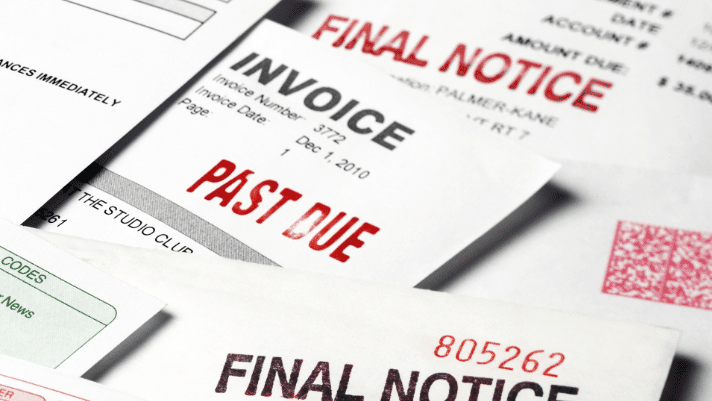In Oregon, the timeline for responding to a debt collection lawsuit varies depending on whether it’s in circuit court or small claims court. In circuit court, you have 30 days to respond, while in small claims court, the window is shorter at 14 days. Additionally, there’s typically a fee required to file your Answer document into the case.
Dealing with a debt collection lawsuit in Oregon can be a daunting experience, but it’s crucial to understand that you have the ability to respond effectively and protect your rights. In this comprehensive guide, we’ll walk you through the process of answering a summons for debt collection in Oregon, providing you with all the essential information you need to navigate this legal situation with confidence.
First and foremost, it’s important to recognize that receiving a summons for debt collection is a serious matter that requires your attention. Ignoring the summons or failing to respond in a timely manner can have significant consequences, potentially resulting in a default judgment against you. By taking proactive steps to respond to the lawsuit, you can assert your rights and potentially achieve a favorable outcome.
In this guide, we’ll cover a range of important topics, including:
- Understanding the Summons: We’ll explain what a summons for debt collection is, what it means for you, and the importance of responding promptly.
- Responding to the Lawsuit: We’ll provide step-by-step instructions on how to draft and file your answer to the lawsuit, ensuring that you meet all deadlines and legal requirements.
- Legal Considerations: We’ll discuss key legal concepts and considerations relevant to debt collection lawsuits in Oregon, such as statutes of limitations, affirmative defenses, and more.
- Using ZumaZip: We’ll introduce you to ZumaZip, a valuable tool that can streamline the process of responding to a debt collection lawsuit, making it easier and more efficient for you to navigate the legal system.
- Additional Resources: We’ll provide information on additional resources and support services that may be available to you as you navigate the debt collection process in Oregon.
By arming yourself with knowledge and taking proactive steps to respond to the lawsuit, you can assert your rights and defend yourself against unfair or unjust debt collection practices. With the guidance provided in this guide, you can approach the situation with confidence and work towards achieving a positive outcome.
Table of Contents
- Deadlines
- Answer Forms
- Fees
- Steps to Respond
- What is ZumaZip?
- Statute of Limitations in Oregon
- Oregon legal aid
- Key Takeaways
Oregon deadline to Answer a debt collection summons
Responding to a debt collection lawsuit in Oregon is crucial to protecting your rights and avoiding unfavorable outcomes. Failure to respond within the state’s specified deadline can result in serious consequences, including default judgment against you. This means the plaintiff can request the court to grant them the right to garnish your wages or seize your property to satisfy the debt.
To prevent such outcomes, it’s imperative to take prompt action and submit your response before the Oregon deadline. By doing so, you assert your rights, contest the claims made against you, and potentially negotiate a more favorable resolution. Don’t risk facing the consequences of default judgment—respond to your debt collection lawsuit in Oregon before it’s too late.
Oregon Rules of Civil Procedure Rule 7 C(2) states:
“Time for response. If the summons is served by any manner other than publication, the defendant shall appear and defend within 30 days from the date of service. If the summons is served by publication pursuant to subparagraph D(6)(a)(i) of this rule, the defendant shall appear and defend within 30 days from the date stated in the summons. The date so stated in the summons shall be the date of the first publication.”
This means that, generally, you have 30 days to respond to a debt collection lawsuit in Oregon.
If your lawsuit is a Small Claims case (no lawyer involved and amount claimed is less than $10,000), then you have 14 days to respond.
Use an Oregon Answer to Summons form
To respond to your debt collection lawsuit, you need to make an Answer document that responds to the Summons and Complaint you received.
The fastest and easiest way to do this is to use ZumaZip’s Answer form to respond to your lawsuit. You can fill out your Answer on ZumaZip’s website in just 15 minutes for free.
Oregon courts also provide some helpful forms. Check them out below:
Use one of these forms to create your response to the debt collection lawsuit, but you will have to fill it out by yourself. You can also take a look at these other forms provided by Oregon Courts. Oregon also provides an eFiling option, but we didn’t think it was easy to use.
Oregon courts charge an Answer filing fee
Oregon courts charge a filing fee to file your Answer with them. We know, it’s pretty messed up—you get sued for a debt and you have to pay a fee just to respond, even if you don’t actually owe it. If you wanted to sound like a lawyer you’d say, “that’s unconscionable!” But pay you must.
Here’s how the fees break down, according to the Oregon Judicial Department Fee Schedule:
Small Claims fees:
- $57 fee for cases involving less than $2,500
- $102 fee for cases involves $2,500-$10,000
Regular Civil fees
- $170 fee for cases involving less than $10,000
- $283 fee for cases involving $10,000-$50,000
- $594 fee for cases involves $50,000-$1M
Oregon has some of the highest filing fees in the country. Looks like the courts need to do a little more yoga and chill out.
Let’s consider an example to understand how Answer filing fees apply.
Example: Tim is sued for $1,000 in small claims court in Oregon. Since the amount in controversy is less than $2,500, Tim needs to pay the $57 filing fee. If Tim was being sued for the same amount, but the case was filed in the circuit court, he would have to pay $170 to file his Answer.
If you can’t afford to pay the filing fee, you can fill out the Oregon courts fee waiver application. If you can prove that paying the filing fee would cause financial burden, the court will likely excuse you from paying the fee.
Follow these steps to respond to a debt collection case in Oregon
A lawsuit begins when you receive the Summons and Complaint. The Summons notifies you of the case, while the Complaint lists the specific claims being made against you. Once you receive these documents, your clock starts ticking and you need to respond or you will lose your case automatically.
To respond to a Summons and Complaint in Oregon, you need to create an Answer document.
There are three steps to responding to a debt collection lawsuit.
- Respond to each allegation listed in the complaint.
- Assert your affirmative defenses.
- File the Answer with the court and serve the plaintiff.
Now, let’s explore each step.
ZumaZip can help you increase your chances of winning by 7x.
1. Respond to each allegation listed in the Complaint
Next, you need to respond to every paragraph of the Complaint. The Complaint includes several numbered paragraphs that lay out the lawsuit against you. For debt collection cases, there are usually between 10 and 30 numbered paragraphs. Read each paragraph and decide how you want to respond. You can only respond in three ways:
- Admit: Admit the claim if you agree with everything in the paragraph.
- Deny: Deny the claim if you disagree with anything in the paragraph.
- Deny due to lack of knowledge: This is a lawyerly way of saying “I don’t know.” Choose this option if you don’t understand the claim or if you don’t have the information needed to respond to it.
Choose one of these responses and write it into your Answer after the corresponding paragraph number.
Many attorneys recommend making a general denial, where you deny everything in the Complaint and force the other side to prove everything. This is a good strategy in many cases.
Answer a debt collection lawsuit in minutes with ZumaZip.
2. Assert your affirmative defenses
Once you’ve responded to each claim, you are ready to assert your affirmative defenses.
An “affirmative defense” is a reason why the person suing you doesn’t have a case; it is your defense against the lawsuit. You must list these defenses in your Answer otherwise, you can’t bring them up later.
That’s right, asserting your affirmative defenses is a once in a lifetime opportunity: if you don’t bring them up now, you are legally prohibited from bringing them up later. Many online forms don’t help you assert your affirmative defenses, ZumaZip does.
According to Oregon Rules of Civil Procedure, Rule 19(B) states:
“Affirmative defenses. In pleading to a preceding pleading, a party shall set forth affirmatively: accord and satisfaction; arbitration and award; assumption of risk; claim preclusion; comparative or contributory negligence; discharge in bankruptcy; duress; estoppel; failure of consideration; fraud; illegality; injury by fellow servant; issue preclusion; laches; license; payment; release; statute of frauds; statute of limitations; unconstitutionality; waiver; and any other matter constituting an avoidance or affirmative defense.”
These are all the fancy, legal names for the different types of affirmative defenses you can include in your Answer.
Here are some of the more common defenses we see in debt collection cases (in simplified language):
- The account with the debt is not your account.
- The contract was already canceled. Therefore you don’t owe the creditor anything.
- The statute of limitations has expired. A statute of limitations is a law that sets a deadline on an action. Below, we break down the the statute of limitations in Oregon.
- The debt has been paid or excused.
- The debt has been partially paid.
- You were a co-signer but were not informed of your rights as a co-signer.
These are a few of the many affirmative defenses. Being unable to pay the debt is not normally a legal defense to the debt.
Make the right affirmative defense the right way with ZumaZip.
3. File the Answer with the court and serve the plaintiff
Once you have responded to the paragraphs in the Complaint and asserted your affirmative defenses, you are ready for the final step: file your Answer.
The Answer document by itself is worthless unless you file it properly. Otherwise, it’s like doing homework and not turning it in. ZumaZip takes care of this for you so you don’t have to worry about buying a printer and figuring out whether you need Certified Mail or Priority Mail at the Post Office.
You can speed up the filing process by filing your Answer electronically. Oregon has a statewide court e-filing system. It can be confusing to navigate the e-filing system, but ZumaZip has it all figured out and can file your Answer in minutes.
If you prefer to mail your Answer in, here’s what you need to do to file your Answer.
- Print two copies of your Answer.
- Mail one copy to the court.
- Mail the other copy to the plaintiff’s attorney.
The address for the attorney will be in the Summons and Complaint you received in the mail. But where is the address for the Court? Good question—most Summons don’t list the address of the Court. And the mailing address is often different from the physical address of the court listed on Google. That’s why we’ve taken the time to call every court in Oregon and find the mailing address for you. They are listed below.
Once you complete this final step: Congrats! You have successfully responded to your debt lawsuit.
ZumaZip can file your Answer for you in all 50 states.
Why ZumaZip?
ZumaZip makes it easy to fight debt collectors.
You can use ZumaZip to respond to a debt lawsuit, to send letters to collectors, and even to settle a debt.
ZumaZip’s Answer service is a step-by-step web-app that asks you all the necessary questions to complete your Answer. Upon completion, we’ll have an attorney review your document and we’ll file it for you.
Statute of Limitations on Debt in Oregon
The statute of limitations is the time period that a debt collector or creditor has to sue someone for a debt they owe. If the statute of limitations on a debt is expired, then you can bring up the expiration as a winning defense in the even that you get sued.
According to Oregon’s Procedure in Civil Proceedings, §12.080 states:
“Action on certain contracts or liabilities. (1) An action upon a contract or liability, express or implied . . . shall be commenced within six years.”
This means that the statute of limitations on debt in Oregon is typically six years. So, if your last payment on a debt was six years ago, you cannot be taken to court for it. That being said, some types of debts have other limitations.
The table below outlines the statute of limitations on different types of debts in Oregon:
| Debt Type | Deadline |
|---|---|
| Credit Card | 6 years |
| Medical | 6 years |
| Student Loan | 6 years |
| Auto Loan | 6 years |
| Personal Loan | 6 years |
| Mortgage | 10 years |
| Judgment | 10 years |
| Source: ORS § 12.050, § 12.070, and § 12.080 |
Regardless of the debt’s statute of limitations, creditors will still try to sue you beyond the deadline and many succeed. Remember that in order to avoid being held responsible for the debt, you’ll still need to mention the statute of limitations as an affirmative defense in your Answer.
If you start making payments on an old debt that has already passed the statute of limitations, the clock will restart and you may be taken to court for it. Because of this, you should always check the last activity on your debt account and your state’s statute of limitations before agreeing to any payment plans.
Oregon Legal Aid Organizations
Every state has at least one government-funded organization that provides free legal services to people. Oregon has a couple:
Legal Aid Services of Oregon
520 SW Sixth Avenue, Ste 1130
Portland, OR 97204
(503) 224-4094
https://lasoregon.org/
Oregon Law Help
Find your office by county
https://oregonlawhelp.org/
Public Benefits Hotline
1-800-520-5292
Oregon court mailing addresses
To file your Answer, you need to get it to your court. For many people, the easiest way to do this is to mail it. But it can be surprisingly difficult to find the mailing address for your court online. So we’ve compiled a list of nearly all Oregon courts and their addresses, court clerk information, and more.
Use our Oregon courts page to find more information on your courthouse.
Key Takeaways
So, here’s the review on how to answer a Summons for debt collection in Oregon.
- You have 30 days to respond to a debt collection lawsuit in Oregon. If your case is in Oregon Small Claims court, you have 14 days to respond.
- You can use ZumaZip’s Answer form to respond to your Oregon debt case in minutes.
- Oregon circuit courts charge a fee to file your Answer: $170 for cases with less than $10,000 in question, $283 for cases between $10,000 and $50,000, and $594 for cases with more than $50,000 in question.
- You must respond with a written Answer document in which you reply to each claim listed in the Complaint and assert your affirmative defenses.
- File your Answer in the court and send a copy to the plaintiff’s attorney.
- The statute of limitations on debt in Oregon is 6 years.
We hope this guide has been helpful, and we wish you the best of luck with your court case!
What is ZumaZip?
ZumaZip is a convenient solution designed to streamline your response to a debt collection lawsuit. Here’s a breakdown of what you can expect when you use ZumaZip:
Firstly, you’ll access our user-friendly web application, which guides you through the process step by step. You’ll be prompted to answer a series of questions related to your specific situation. Once you’ve completed the questionnaire, you have the option to either print out the finalized forms and mail them to the appropriate courts yourself, or you can opt to utilize ZumaZip’s services to file them on your behalf. Additionally, if you choose this option, an attorney will review your document for added peace of mind.
If you’re seeking guidance on how to effectively respond to a debt collection lawsuit, ZumaZip can provide the assistance you need. Feel free to explore our FAQs for more information on what ZumaZip has to offer.
What if I haven’t been sued yet?
If you’ve only received a collections notice, but not a lawsuit, the best way to respond is with a Debt Validation Letter. When a debt collector contacts you in any way, whether it’s by phone or mail, you can respond by formally requesting a debt validation with a Debt Validation Letter . This letter notifies the collector that you dispute the debt and forces them to provide proof you owe the debt. They can’t call you or continue collecting until they provide validation of the debt. This flowchart shows how you can use a Debt Validation Letter to win.
Get started with a Debt Validation Letter here.
How to Answer a Summons for debt collection in all 50 states
Here’s a list of guides on how to respond to a debt collection lawsuit in each state:
- Alabama
- Alaska
- Arizona
- Arkansas
- California
- Colorado
- Connecticut
- Delaware
- Florida
- Georgia
- Hawaii
- Idaho
- Illinois
- Indiana
- Iowa
- Kansas
- Kentucky
- Louisiana
- Maine
- Maryland
- Massachusetts
- Michigan
- Minnesota
- Mississippi
- Missouri
- Montana
- Nebraska
- Nevada
- New Hampshire
- New Jersey
- New Mexico
- New York
- North Carolina
- North Dakota
- Ohio
- Oklahoma
- Oregon
- Pennsylvania
- Rhode Island
- South Carolina
- South Dakota
- Tennessee
- Texas
- Utah
- Vermont; Vermont (Small Claims court)
- Virginia
- Washington
- West Virginia
- Wisconsin
- Wyoming
Guides on how to beat every debt collector
Hey there! Facing off against a debt collector can feel like a daunting challenge, but fear not! We’re here to help you navigate through it all with our handy guides designed to assist you in beating every debt collector you encounter. Whether you’re facing a new lawsuit or dealing with a persistent collector, we’ve got your back. Stay positive, stay informed, and let’s tackle this together!
- Absolute Resolutions Investments LLC
- Accredited Collection Services
- Alliance One
- Amcol Clmbia
- American Recovery Service
- Asset Acceptance LLC
- Asset Recovery Solutions
- Associated Credit Services
- Autovest LLC
- Cach LLC
- Cavalry SPV I LLC
- Cerastes LLC
- Colinfobur
- Covington Credit
- Crown Asset Management
- CTC Debt Collector
- Cypress Financial Recoveries
- Delanor Kemper & Associates
- Eagle Loan of Ohio
- Educap
- Estate Information Services
- FIA Card Services
- Forster & Garbus
- Freshview Solutions
- Fulton Friedman & Gullace LLP
- Harvest Credit Management
- Howard Lee Schiff
- Hudson & Keyse LLC
- Integras Capital Recovery LLC
- Javitch Block
- Jefferson Capital Systems LLC
- LVNV Funding
- Mannbracken
- Mariner Finance
- Medicredit
- Michael J Adams PC
- Michael J Scott
- Midland Funding LLC
- Mullooly, Jeffrey, Rooney & Flynn
- Mountain Land Collections
- MRS Associates
- National Collegiate Trust
- Nationstar Foreclosure
- Northstar Capital Acquisition
- NCEP LLC
- NRC Collection Agency
- OneMain Financial
- Palisades Collection LLC
- Pallida LLC
- Paragon Revenue Group
- Pinnacle Collections Agency
- PMAB LLC
- Portfolio Recovery Associates
- Provest Law
- PYOD LLC
- Reunion Student Loan Finance Corporation
- Revenue Group
- Regents and Associates
- RSIEH
- Salander Enterprises LLC
- Second Round Sub LLC
- Security Credit Services
- Sherman Financial Group
- Suttell and Hammer
- T-Mobile
- Transworld Systems
- Tulsa Teachers Credit Union
- UCB Collection
- Velo Law Office
- Velocity Investments
- Waypoint Resource Group
- Weinberg and Associates
- Wolpoff & Abramson
Settle your medical debt
Having a health challenge is stressful, but dealing medical debt on top of it is overwhelming. Here are some resources on how to manage medical debt.
- Am I Responsible for My Spouse’s Medical Debt?
- Do I Need a Lawyer for Medical Bills?
- Do I Need a Lawyer to Fight Medical Bill Debt?
- Does Bankruptcy Clear Medical Debt?
- How Much Do Collection Agencies Pay for Medical Debt?
- How to Find Medical Debt Forgiveness Programs
- Is There a Statute of Limitations on Medical Bills?
- Medical Debt Statute of Limitations by State
- Summoned to Court for Medical Bills — What Do I Do?
- Summoned to Court for Medical Bills? What to Do Next
Stop calls from Debt Collectors
Do you keep getting calls from an unknown number, only to realize that it’s a debt collector on the other line? If you’ve been called by any of the following numbers, chances are you have collectors coming after you, and we’ll tell you how to stop them.



































